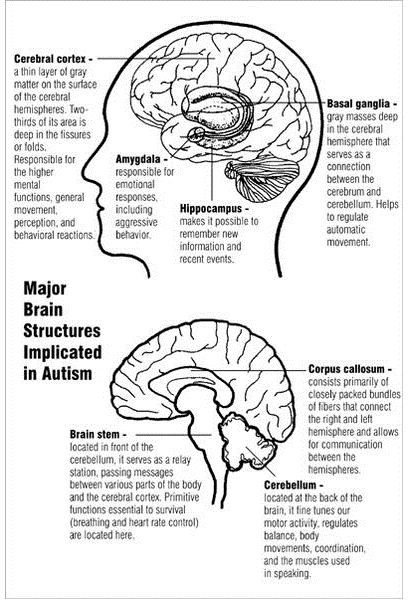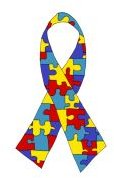Overcoming The Difficulties of Autism Spectrum Disorders
Some Challenges You May Face
In the early years of a child’s life the most important thing is to keep them safe and help them to learn. It is no different with autistic children except the effort required of you will be greater. Here are some difficulties of autism spectrum disorders that you may have to face with your autistic child in the early years:
- Head banging, or other dangerous self-harming activities
- Potty training issues
- Your child may come across as deaf or stupid, when this is farthest from the truth
- Interactions are difficult as your child may misunderstand facial expressions
- Your child may be over sensitive to sound, touch, or smell
- There may be lack of or late speech development
How to Deal With the Challenges
1. Head Banging:
Most doctors will tell you they do not know why autistics bang their heads. You must be prepared to protect them from this behavior. You know your child. When their frustration builds, watch them. Don’t let them hurt themselves. If you
cannot be close to them all the time, consider a helmet until this behavior passes. It may last a year, more or less, but finally they do get over their head banging behavior.
2. Potty Training:
These kids sleep so deeply that they will wet the bed for quite some years. If your child does not have this problem, count your blessings. Here is what we did.
We went through periods of letting him be wet, and doing the regular underwear and plastic pants thing. This was quite effective, as he hated it, but he still could not control it at night. To be kind we gave him Pullups. It took daily reminders, a lot of love, and letting him know we were not real happy with the smell if he did not hurry to the restroom in time. Finally he transitioned out of this, but not until he was older than eight years of age.
3. Coming Across Deaf or Stupid:
Many autistic kids will make you think they are deaf or that they do not understand what is going on, when in fact they hear and understand perfectly. This is because they often do not use non-verbal skills in the same way as the rest of us. You have to get their attention by tapping their shoulder, or making eye contact.
Call the child’s name over and over. When the child finally notices that you are speaking, point out to them that they were not listening. Be very expressive when you talk. Use your hands to demonstrate, and talk slower while pronouncing your words. This is very effective in helping an autistic child learn to listen.
4. Misunderstanding Facial Expressions:
You may have noticed your child looking puzzled or about to cry, leaving you with no idea why. It is quite possible that they do not understand your facial expressions.
Something helpful we did to teach different expressions to our son is that we showed him pictures of people crying, laughing, and so forth. It’s important to use a different picture every time if possible, as they memorize them. Many autistic children have photographic memories.
5. Oversensitivities:
Many autistics are usually very sensitive to loud noises, and sometimes even mild noises will set them off. Be considerate of them in loud situations, but expect them to participate. This helps them to learn how to manage the intense feelings they are experiencing. With practice, they will be able to go out in public without causing a scene. For the most part however, it seems to help to keep their environment quiet.
It is important to note with regards to sound, that it may not be the level of the sound that is bothering them. All of the different sounds put together can be chaotic to them.
6. Late Speech:

The most important thing to remember is to have patience. An autistic’s timeline is not the same as for other children.
One of the most effective ways to bring about proper speech in an autistic child is to ask them to repeat what you say. The scenario goes like this. Josh, say, " I want to go play". Helping them say what they want instead of just giving them what they want brings these kids out. Do this all of the time and before you know it, they will be saying what they think instead of leaving you guessing.
My son did not talk until he was four and a half. Even then he only wanted to grunt and point at things he wanted in the refrigerator. Every time he would grunt for juice, we made him say the name of what he wanted. How did we make him you ask? It was not easy. We would point to different things he was pointing towards and ask him, do you want milk, juice, and so forth. If he gave us the indication that he wanted juice, we made him say “juice” before giving it to him. We had to say the word “juice” and ask him to repeat it. He could not say it very clearly, but when he tried, we gave him his reward. Likewise, if he threw a fit and refused, we would close the fridge door and walk away. He quickly got the point.
Many autistic children have echolalia. This is where they copy what you say when you ask a question. Autistic children do not grasp sentences that begin with who, when, where, why or how. We would ask, “what is your name?” His reply would be, “what is your name?”. We had to teach him the proper reply with the two most common questions asked. What is your name and how old are you? He would get them confused; finally after much practice, he got it!
Try to strike a balance between training and play, be firm yet loving, for your child and your family. Never give up as you work through the difficulties of autism spectrum disorders.
Resources:
Source: Author’s personal experience.
Autism Today, https://www.autismtoday.com/articles/Autistic%20language.asp?name=Donna%20Williams
Siegel & Agins Co, https://www.nessasiegel.com/challengesofautism.html
Picture # 1: Wikimedia Commons-Public Domain-https://commons.wikimedia.org/wiki/File:Autism_awareness_ribbon-20051114.png
Picture # 2: Wikimedia Commons-Public Domain-https://commons.wikimedia.org/wiki/File:Autism brain.jpg
This post is part of the series: Autism-Educate,Prevent, & Cure-Love those with autism.
Autism is here, we must love those who have this condition all the while trying to understand the newest research. If there is a way to prevent it we want to prevent it. Let us educate ourselves; find out how to prevent autism, and cure it if possible. Ultimately devoted to love those affected.
